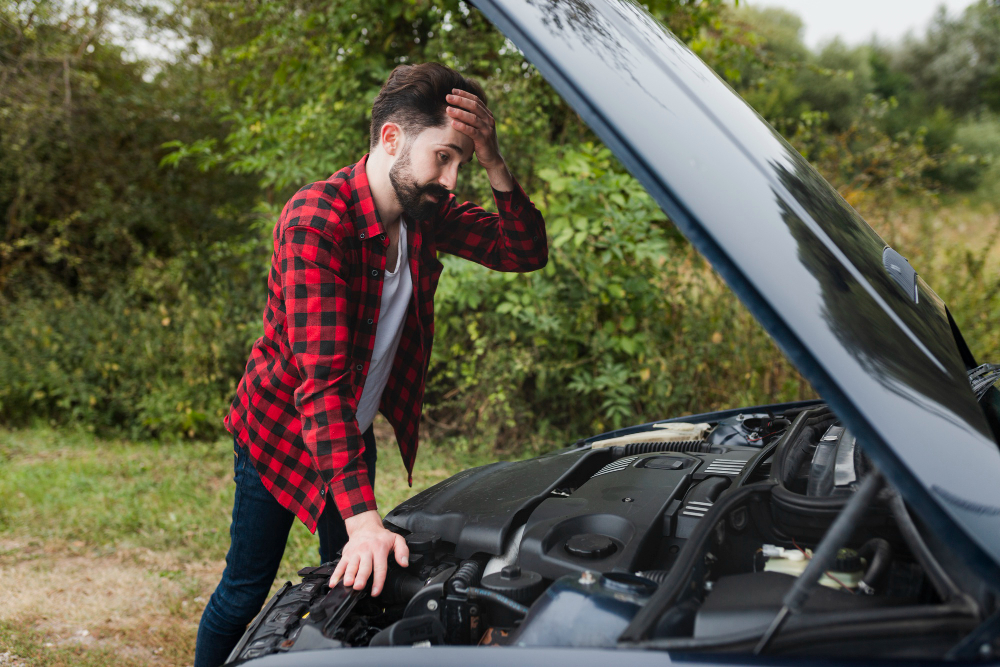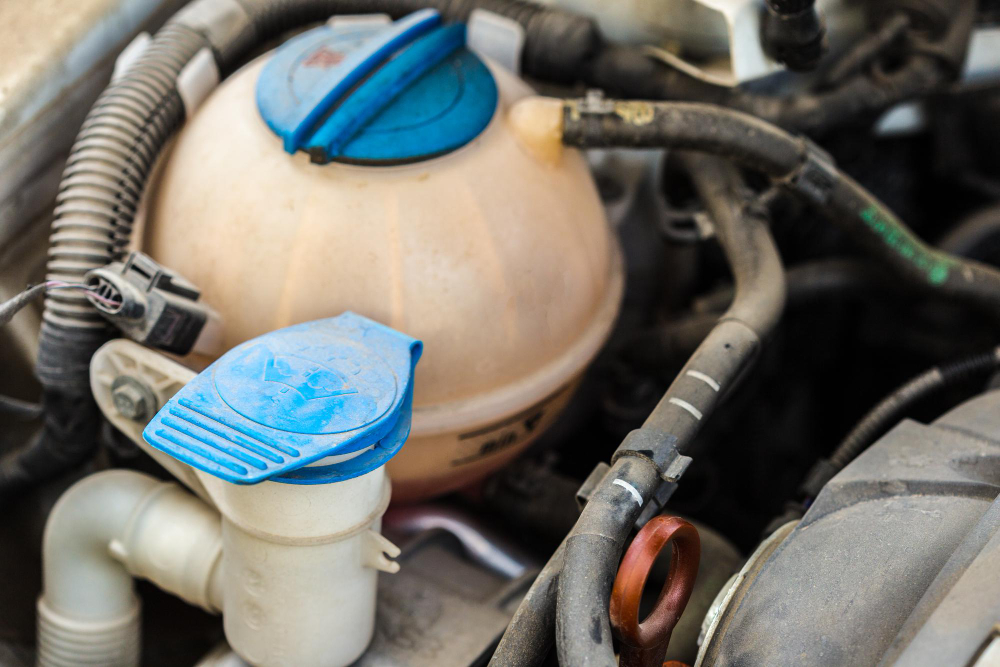A water pump is one of the most important parts of a car as it is responsible for circulating the coolant in order to cool the engine no matter the conditions in which the car is being used. Regular inspections at our auto repair shop can help ensure the water pump is functioning properly and prevent unexpected breakdowns.
Similar to any mechanical component of a vehicle, the water pump has the tendency to deteriorate over time.
The symptoms of a failing water pump indicate that more severe issues with the engine, including overheating and major damage, may be prevented.
This guide will assist you in knowing when to change the water pump of your car, the signs of failure, and why it is essential to do so.
The Role of a Water Pump Explained
The water pump plays a very crucial role in the cooling system of your car. It pumps coolant from the radiator through the engine block, hoses and the radiator again so that it can absorb heat from the engine.
It is crucial for regulating the temperature at which the vehicle is running, thus preventing the engine from overheating.
Symptoms of a Failing Water Pump

Sometimes, a water pump problem may not be noticeable until it has escalated to a big problem that will require you to spend a lot of money for repairs.
Let’s look at some initial signs that your water pump might be failing:
Early Signs of Water Pump Failure
Sometimes, a water pump problem may not be noticeable until it has escalated to a big problem that will require you to spend a lot of money for repairs.
Here are the initial signs that your water pump may be failing:
Coolant Leak at the Front-Center of Your Car
A coolant leak is one of the first things that may indicate that your vehicle’s water pump is failing.
It is also possible to observe a pool of coolant, which is usually green, orange, or red, beneath your car, near its front center.
This leakage arises from the fact that the gasket or seals of the water pump may wear out and thereby allow coolant to leak out.
Whining Sounds
Another symptom is a high-pitched whining noise coming from the front of the engine area. In the case of a car, this noise is usually associated with the pulley of the water pump.
This is because if the bearings or the pulley system that is usually used to drive the belt of the pump becomes loose or damaged, it will produce some strange noises.
Such sounds can also increase or decrease depending on the speed of the engine.
Overheating Engine
If your car’s engine starts overheating, particularly at a stop or during idle, it could be a sign that the water pump is not functioning correctly.
An ineffective pump fails to circulate coolant through the engine, leading to a rapid increase in engine temperature.
Steam from the Radiator
Seeing steam emanating from the radiator is a critical sign. This usually happens when the engine overheats because the water pump is unable to circulate coolant through the system efficiently.
If you notice steam, pull over and turn off your engine as soon as it’s safe to do so to avoid engine damage. Remember that you can stay safe from all the above-mentioned symptoms if you get regular cooling system service.
Symptoms of Progressive Water Pump Failure
If initial signs are ignored, the water pump can deteriorate further.
Decreased Cooling Efficiency
In as much as you will realize that your car is not able to maintain a steady engine temperature as the efficiency of the water pump reduces.
Sometimes, the variation in the temperatures depends on the weather, especially when it is very hot or cold, and may point toward an issue with the cooling system.
Corrosion and Deposit Build-Up
Periodically, the water pump may corrode, or mineral deposits can accumulate on the pump.
This breakdown can also affect the pump and its parts mechanically due to the damage that it causes to the material of the pump and the constituent parts, leading to the formation of leaks and a reduction in the efficiency of the pump.
It is possible to identify such problems during the inspection, which can prevent failure in the future.
Pump Pulley Looseness
Look for signs of play or wobble in the water pump pulley. Any slack could point to bearings within the pump that are wearing out or have already been given out.
This mechanical failure results in a decrease in the efficiency of the pump and consequently, excessive heat generation in the engine.
When to Replace Your Water Pump
It is recommended to change the water pump in your car in accordance with the timetable set by its manufacturer.
However, if any of the above signs is evident, it is advisable to seek assistance of a mechanic and get your water pump checked and possibly changed earlier to avoid more harm to your engine.
Besides, water pump change is also done during regular servicing when the timing belt or chain is being replaced since both of them are usually of similar service duration.
Keeping Your Car Cool with Expert Care
Whenever you notice any issues with your car’s cooling system, it’s crucial to address them promptly to avoid extensive engine damage.
Visiting a professional service center like Eric’s Car Care ensures that your vehicle is examined and repaired by experts who specialize in automotive cooling systems.
We can provide comprehensive diagnostics and the necessary repairs to keep your car running smoothly and efficiently.
Remember, maintaining the health of your car’s water pump and cooling system is key to ensuring the longevity and optimal performance of your vehicle. Book your appointment today at 713-667-9293 and experience your car’s peak performance!

